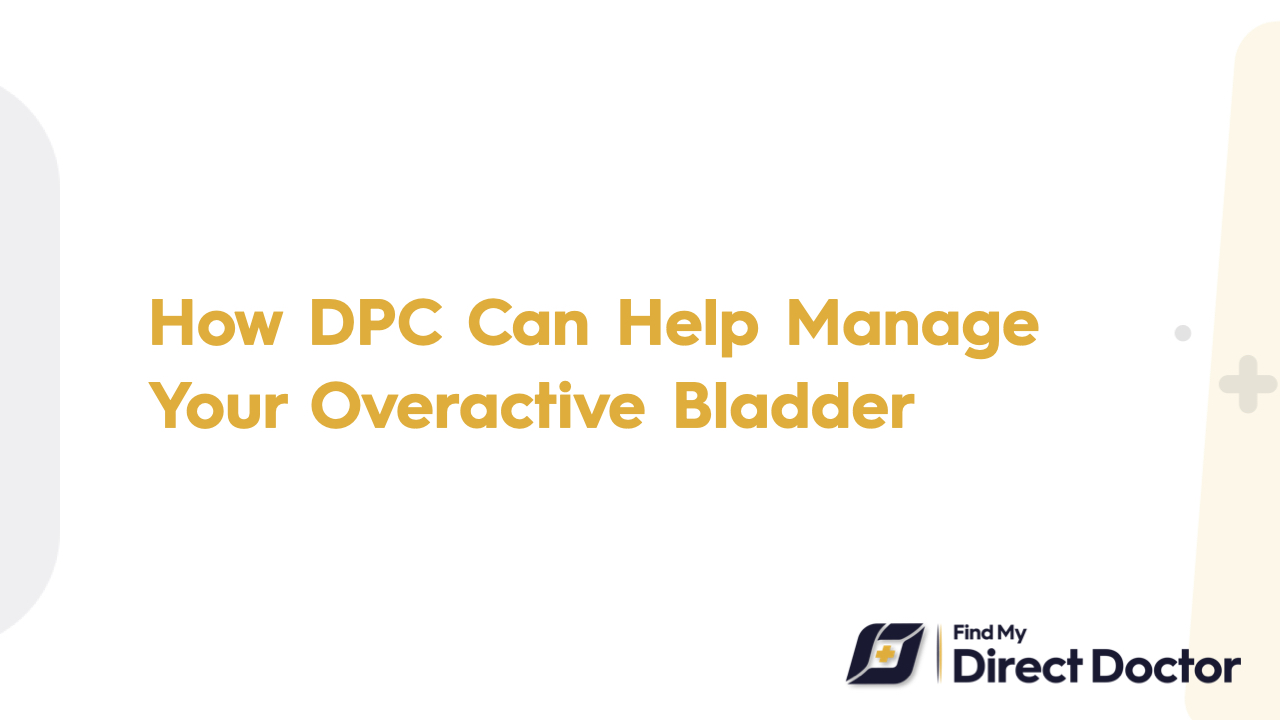



Frequent urination during the day and night is a common symptom of overactive bladder (OAB), a disorder marked by an abrupt and uncontrollable need to urinate. Urinary incontinence, or the involuntary flow of pee, is another condition that some people may have. The overactivity of the bladder muscles, which can be brought on by a number of things such nerve malfunction, bladder irritation, or certain drugs, is what causes OAB. These symptoms can cause discomfort, shame, and disruption of regular activities, which can have a substantial impact on daily living.

Direct Primary Care (DPC) is a thorough and patient-focused method of treating OAB. Through in-depth discussions and diagnostic testing, DPC physicians concentrate on identifying the underlying cause of the illness. They work together with patients to create efficient management plans that may involve medication, bladder training, and lifestyle changes. DPC guarantees that therapies are modified as necessary to improve symptom control and quality of life through continuous monitoring and frequent follow-ups.
DPC's individualized care and accessibility are very beneficial to patients with OAB. Longer visits and more frequent encounters are made possible by DPC, in contrast to traditional care models, which facilitate a better comprehension of the patient's condition and difficulties. Without the delays or restrictions frequently connected with insurance-based healthcare, this method guarantees that patients receive individualized treatment plans and ongoing assistance. Direct communication with a committed provider increases patient satisfaction and builds trust.
OAB is managed in DPC according to the particular requirements and objectives of each patient. To address the unique triggers and symptoms of OAB, providers develop customized care regimens that include behavioral therapies, dietary recommendations, and medication treatments. Additionally, they instruct patients on methods to enhance bladder control, such as hydration management and pelvic floor exercises. Throughout the course of therapy, DPC makes sure patients feel empowered and supported by upholding open communication and offering continuous guidance.